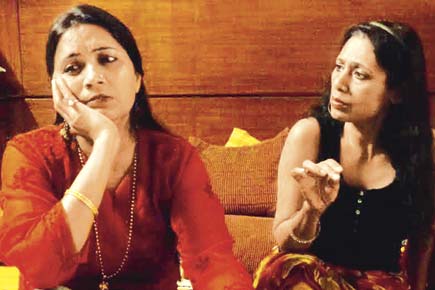When Nora of Henrik Ibsen’s A Doll’s House left her husband’s home, the slamming of the door was heard around the world

 When Nora of Henrik Ibsen’s A Doll’s House left her husband’s home, the slamming of the door was heard around the world. A woman leaving her husband was unheard of in pre-women’s movement times, and the play, in its own way, heralded the dawn of feminism.
When Nora of Henrik Ibsen’s A Doll’s House left her husband’s home, the slamming of the door was heard around the world. A woman leaving her husband was unheard of in pre-women’s movement times, and the play, in its own way, heralded the dawn of feminism.
Eventually, the battle for gender equality and women’s rights would reach Indian shores, and be expressed through literature, art, cinema and theatre. About 40 years ago, Kamla Kapur wrote a play called Kaamiya, which starts where A Doll’s House ends.
ADVERTISEMENT
It speculates on what could happen to an educated, urban woman when she leaves her husband and returns to her father’s home. (The play won the Sultan Padamsee Award for Playwriting in 1977.)

Breaking the pattern: Kaamiya, the play, speculates on what could have happened to an educated, urban woman when she leaves her husband and returns to her father’s home
Ank theatre group, under the direction of Ram Gopal Bajaj, did a new production of Kaamiya for the NCPA’s Ananda Hindi Theatre Festival, with Preeta Mathur playing the eponymous protagonist.
The play is set in the seventies, and is a good indicator of just how far Indian women have reached, riding the wave of the feminist movement; obviously the women under scrutiny are the ones who have the freedom to choose, which subtracts a large chunk of poor, uneducated women.
When the play begins, Kaamiya has just left her husband and returned to her father’s home. The atmosphere is one of mourning, with people visiting to commiserate, as if she has been widowed. The question is ‘why’? and Kaamiya has no answer. She tries to be flippant with two nosy neighbours, telling them that she left him because he didn’t like to eat ‘aloo bharta’.
But she has to first find the answer to the question for herself. Kaamiya belongs to the time when women were allowed out of the confines of their homes, given an education but after that were expected to quietly conform, marry the men their families chose (or have love marriages, if permitted) and become homemakers.
Even if a few pursued careers, they still had to handle the domestic chores and raise children almost single-handedly. Singledom was not an option, and divorce a social disaster for the family. Kaamiya’s father (Aman Gupta) believes he is modern, but even he cannot cope with changing gender roles.
He thinks it’s okay for women to do social work, but without rocking the domestic boat. His wife, Kaamiya’s mother (Meena Vaishnav), has developed a strange OCD behavior, and is obsessed with dusting the house.
She has seen one uncontrollable daughter — Kaamiya’s sister — lose her mental balance and be confined to an asylum, so Kaamiya’s rejection of her wifely role disturbs her immensely.
Kaamiya’s role model is obviously her father’s sister Sarla (Laxmi Rawat), who has also left her husband and is engaged in her own pursuit of happiness. She speaks in a childishly high-pitched voice that veers from the courageous and wise to plainly batty.
Sarla is a woman ahead of her times, with a feminist ideology clear in her mind, but as yet, without peers. The playwright sees her also descend into madness, living a part of her life as poor relative in her brother’s house, and part in a romantic fantasy.
Preeta Mathur plays Kaamiya as a woman confused. The actress says that she understands where Kaamiya is coming from and empathises with her. Kaamiya wants to be a writer, and escapes her paternal home in the hope that marriage will give her freedom. Her husband Murli (Gunjan Kumar), seemed open-minded when she met him, but also wanted her to become the traditional wife and mother.
“The poverty of her existence makes her realise that she is turning into her mother, and seeks escape again, without knowing just what she is looking for, because at that time there was no support for women who wanted to break out of the domestic mould,” explains Preeta. Kaamiya says that her husband wants her body and father wants her soul, but neither offers the love she craves. Even the playwright seems to pick madness as a way out for rebellious women.
Now, 40 years later, many urban women take their freedom for granted; they have a right to an education, to choose a career, to select a mate or stay single, to decide on whether or not to have children, but it has taken millions of women years of turmoil and sacrifice to help others to reach this stage. Kaamiya is a reminder of what things could have been like, were it not for Nora’s spiritual daughters like Sarla and Kaamiya slamming many more doors.
Deepa Gahlot is an award-winning film and theatre critic and an arts administrator. You can follow her on twitter @deepagahlot
 Subscribe today by clicking the link and stay updated with the latest news!" Click here!
Subscribe today by clicking the link and stay updated with the latest news!" Click here!







